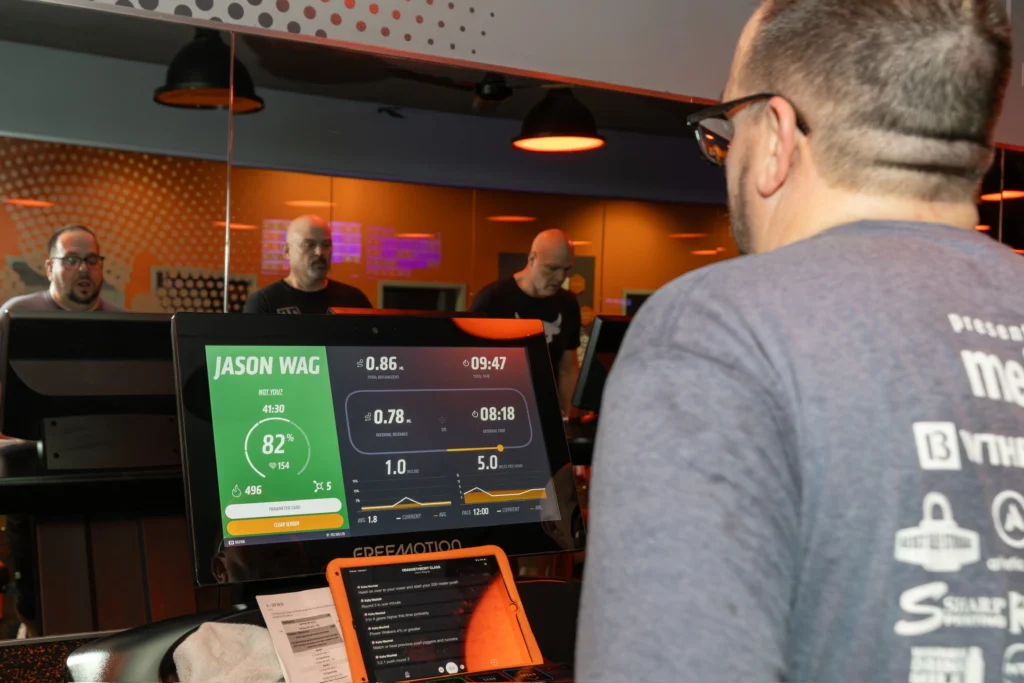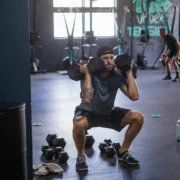For Jason Wagner, the hardest part about committing to a fitness regimen isn’t the mental grind of sticking to a routine or the pain of pushing through periods of physical exhaustion.
Wagner struggles with those things, as does just about anyone who’s ever stepped foot inside a gym or fitness studio. But his core struggle hits at something more fundamental to the human experience: acceptance.
As a deaf fitness enthusiast, Wagner has struggled to find places where he’s able to get in a good workout, especially in a group class setting. It’s not that fitness brands are outright unwelcoming to Wagner, but they often don’t provide the resources that deaf people need to thrive.
“One of the biggest challenges I’ve faced is communication access,” Wagner told Athletech News in an interview conducted over email. “Many fitness classes rely heavily on verbal instruction, and if the coach isn’t visually aware or doesn’t use alternative methods like gestures or written instructions, it can be difficult to follow along.”
Wagner has been a member at Orangetheory Fishers-Geist in Fishers, Indiana, for around three years now, where he’s found the tools he needs to succeed in group fitness. More than that, he’s found a community of staff members, coaches and fellow members who are eager and willing to help.

When Wagner joined, he and the OTF Fishers-Geist team worked together to make Orangetheory’s famous group fitness classes work for him. That includes staff members learning the basics of American Sign Language (ASL).
“When he joined, I refreshed my ASL knowledge from high school and college, and Jason helped us refine signs specific to Orangetheory to support him and other deaf members,” Kaity Wachtel, the regional fitness manager for Orangetheory Fishers-Geist, tells ATN.
“Our team has learned basic signs, from front desk greetings to key (Orangetheory-specific) coaching cues like ‘base,’ ‘push’ and ‘all out,’” Wachtel adds. “We also provide printed workouts and use written or typed communication when needed so Jason has a more convenient way to communicate with the staff.”
Orangetheory’s tech-forward approach to group fitness also helps: the on-screen tracking of performance metrics like heart rate makes it easier for Wagner to stay focused during class without the need for verbal cues, he says. Orangetheory classes also feature on-screen exercise demos, which limit the need for verbal coaching.

Beyond the tech tools currently on offer, OTF Fishers-Geist is exploring a potential partnership with Sorenson, a company that provides communication tools for deaf and hard-of-hearing people, for closed-captioning during classes and interpreter support for first-time guests.
Wachtel says the potential partnership could be a “game-changer” in terms of making fitness more accessible for deaf and hard-of-hearing people – and for people whose native language isn’t English.
“It’s all about meeting people where they are and making sure every member feels included and supported,” she says.
More than tech, though, creating accessible fitness spaces is about prioritizing human connection.
Wagner says he’s become close with OTF staff, coaches and his fellow class members, including one named Rob, whose twin brother is deaf. Rob, who knows some American Sign Language, has helped interpret during class whenever Wagner needs it.
“It really comes down to the gym’s culture: when a space fosters inclusivity, the community follows,” Wagner says. “Of course, there have been times when people weren’t sure how to engage, but once they realize communication doesn’t have to be complicated, they become more comfortable. A simple thumbs-up, high-five or smile can go a long way in making someone feel welcome.”
An endurance athlete and marathon runner, Wagner is currently training to participate in Orangetheory’s DriTri event, which simulates a triathlon inside the studio. His experience at OTF has been an uplifting one, but many deaf people aren’t as fortunate in their fitness journeys.
“The fitness industry has a long way to go in terms of accessibility, (but) my experience at Orangetheory Fishers-Geist has shown me the power of what’s possible when a community embraces inclusion and makes an effort to understand each member’s needs,” Wagner says.
“Many gyms aren’t fully aware of the barriers deaf people face. Studio and gym owners can take real steps toward inclusion by training staff on Deaf awareness, incorporating visual cues in coaching, ensuring key information is available in captioned videos or written formats and offering ASL-friendly classes where possible,” he adds.



